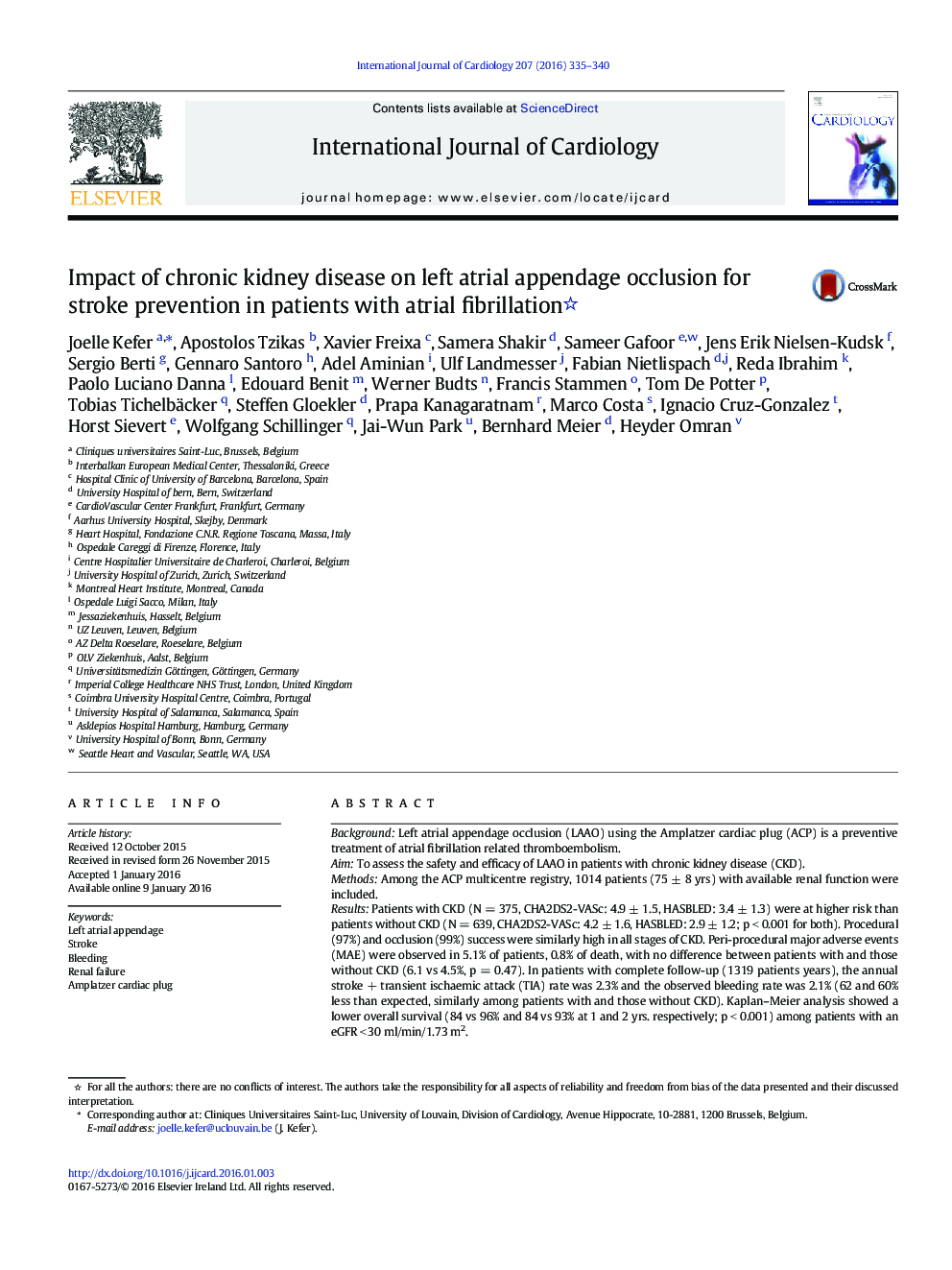| Article ID | Journal | Published Year | Pages | File Type |
|---|---|---|---|---|
| 5964870 | International Journal of Cardiology | 2016 | 6 Pages |
BackgroundLeft atrial appendage occlusion (LAAO) using the Amplatzer cardiac plug (ACP) is a preventive treatment of atrial fibrillation related thromboembolism.AimTo assess the safety and efficacy of LAAO in patients with chronic kidney disease (CKD).MethodsAmong the ACP multicentre registry, 1014 patients (75 ± 8 yrs) with available renal function were included.ResultsPatients with CKD (N = 375, CHA2DS2-VASc: 4.9 ± 1.5, HASBLED: 3.4 ± 1.3) were at higher risk than patients without CKD (N = 639, CHA2DS2-VASc: 4.2 ± 1.6, HASBLED: 2.9 ± 1.2; p < 0.001 for both). Procedural (97%) and occlusion (99%) success were similarly high in all stages of CKD. Peri-procedural major adverse events (MAE) were observed in 5.1% of patients, 0.8% of death, with no difference between patients with and those without CKD (6.1 vs 4.5%, p = 0.47). In patients with complete follow-up (1319 patients years), the annual stroke + transient ischaemic attack (TIA) rate was 2.3% and the observed bleeding rate was 2.1% (62 and 60% less than expected, similarly among patients with and those without CKD). Kaplan-Meier analysis showed a lower overall survival (84 vs 96% and 84 vs 93% at 1 and 2 yrs. respectively; p < 0.001) among patients with an eGFR < 30 ml/min/1.73 m2.ConclusionLAAO using the ACP has a similar procedural safety among CKD patients compared to patients with normal renal function. LAAO with ACP offers a dramatic reduction of stroke + TIA rate and of bleeding rate persistent in all stages of CKD, as compared to the expected annual risk.
